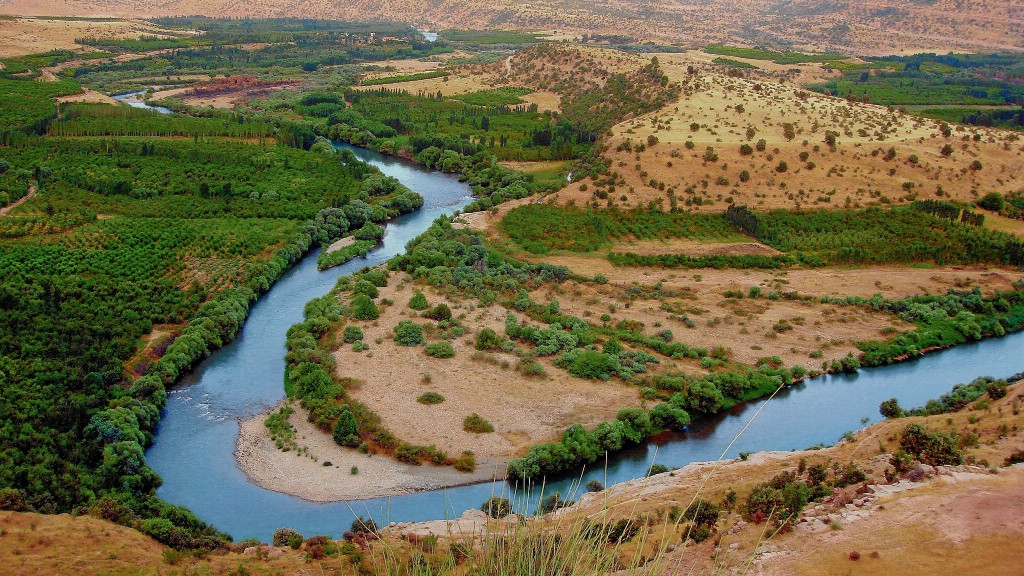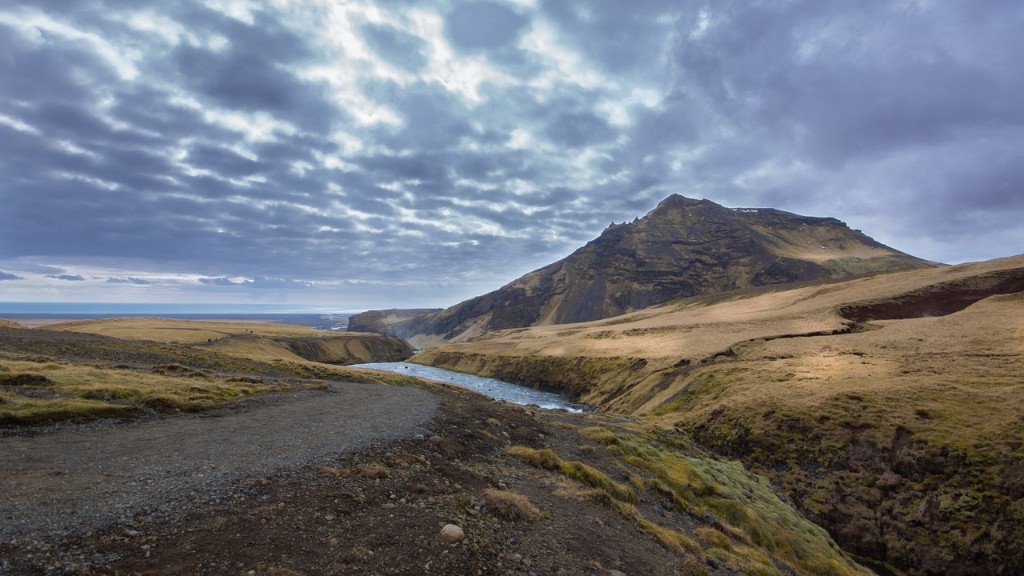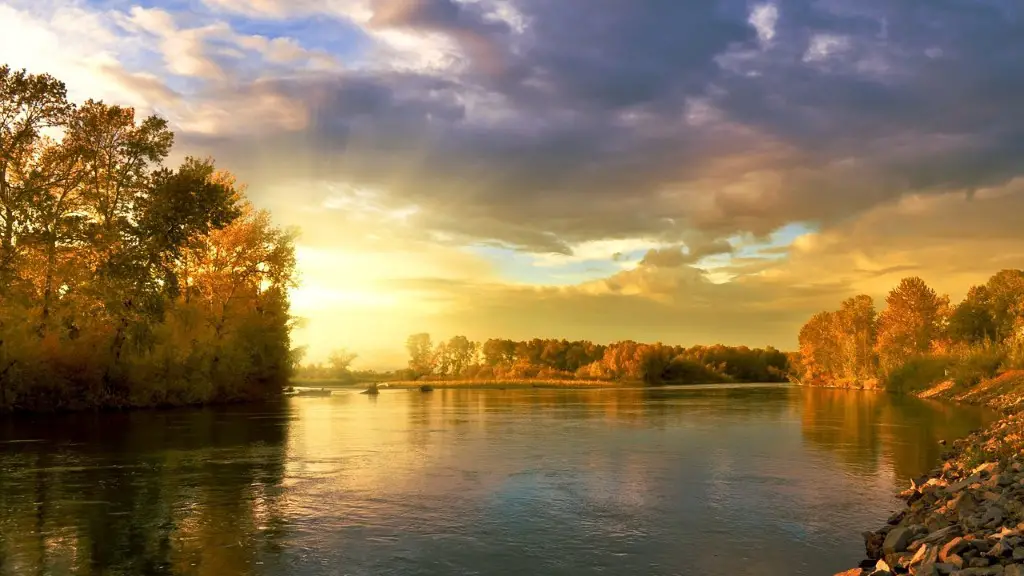The Mississippi River, located in the heart of North America, has been a source of sustenance and nourishment for fish, wildlife and animals living in it since time immemorial. With its vast stretches, varying tributaries and diverse ecosystems, this river supports several flora and fauna species that find a natural refuge in its waters. From carp and catfish to mussels and mallards, the river offers a smorgasbord of life for humans and animals alike.
Its diversity is one of the primary reasons why this waterbody has been a site of great activity. The American fishing enthusiast has much to be grateful for since a number of popular catches of both large and small game fish inhabit the river. Common freshwater species like the largemouth bass, northern pike, walleye, smallmouth bass, muskellunge, gar, and catfish thrive in the waters of the Mississippi River. They also feature in the stocking lists of several local lakes and reservoirs connected to this river.
In addition, aquatic wildlife and migratory birds also find a home in this river. They make their way to this mighty stretch of water during their mating season, nesting cycles, and migratory patterns. During this time, the river teems with species like the Opossum, Musk Turtle, Bobcat, Red Fox, Armadillo and Coyote. The presence of waterfowl in the Mississippi River is also quite strong thanks to its abundance of wetlands and woodlands. Its wetlands are also refuge to several species of ducks, eagles, Egrets, Canadian Geese, Pelicans, and Cormorants. The Bald Eagles, in particular, are known to winter by the thousands along the river and its tributaries.
The importance of the Mississippi River for all kinds of animal, fish, and bird species does not come as a surprise. Its vastness and proximity to various states mean that is has over the years become a hub for various forms of life. At the same time, its riverside habitats, marshlands and reservoirs attract a number of species from other areas of the country as well. The banks of the river provide ample food and shelter for countless birds, fish and other animals. As a result, the Mississippi River continues to serve as a vital source of life for these creatures.
The Ecological Impact of the River
Among all the biodiversity that thrives in the river, some species have come to dominate the waters of the Mississippi, with their presence affecting the ecology of the region. The blue catfish, for instance, is a species that has successfully adapted to the muddy and fast-moving waters of the river. The result has been quite drastic, with the catfish taking over the habitats of other fish species, such as the black and channel catfish. This has changed the landscape of the region’s aquatic wildlife.
Meanwhile, the presence of many different kinds of algae is also a significant aspect of the river ecology. These algae species contribute significantly to the aquatic environment, providing food and shelter for animals and plants. They also act as a form of natural filtration, as they absorb and contain nutrients that might otherwise make their way to other parts of the river. In addition to this, the presence of phytoplankton, zooplankton, and aquatic macroinvertebrates also provide an important source of sustenance for the animals that inhabit the river.
Conservation Issues Facing The Wildlife of The Mississippi River
As with any waterbody, the wildlife of the Mississippi River faces several issues. One of the primary concerns involves water pollution. Industrial activities, agricultural runoff, and waste disposal have all taken their toll on the river. As a result, this has affected the aquatic life that inhabits the waters, making it difficult for some species to survive in the polluted waters.
In addition to this, overfishing has also become a significant concern for the region. With an ever-increasing population and demand for fish, the Mississippi River has experienced some overfishing in recent years. This has put the native species at a risk of extinction, as they are unable to compete with their man-made counterparts. Finally, another major concern is the destruction of wetlands and other natural habitats. These habitats are increasingly under threat due to the human encroachment and destruction of their ecosystems.
The Impact of Humans on the Mississippi River’s Ecology
The Mississippi River’s environmental and ecological balance has been significantly impacted in recent years due to human activities. From overfishing to habitat destruction and pollution, these activities have taken a toll on the wildlife of the river. Even with the strict laws and regulations that have been put in place to protect the river and its inhabitants, the influx of so many human activities has put immense pressure on the natural ecosystems of the region.
At the same time, these activities have also indirectly impacted the way the riverwater behaves. Pollution has made the waters more turbid and murky, leading to a change in the temperature, pH level and oxygen levels. This has had a direct effect on the fish, The Mississippi River is thus facing a number of environmental challenges, and its fragile ecology is on the brink of collapse.
The Future of Mississippi’s Aquatic Life
Despite the challenges that the Mississippi River faces, there is still hope for its aquatic life. Conservation efforts and protective measures, however small, are being undertaken to ensure the safety of the river’s inhabitants. The passage of new and updated laws is also a major factor, as they allow for better enforcement, regulation, and monitoring of the region’s fishing and hunting activities.
Simultaneously, more emphasis is being placed on sustainable fishing practices. The goal is to help conserve the river’s aquatic life and its ecosystem as a whole. These sustainable practices include the use of biodegradable gear, gear testing, limits on catches, and other small but meaningful measures. At the same time, educational outreach initiatives are being conducted to create awareness about the importance of the Mississippi River’s wildlife and environment.
The Significance of the Mississippi River’s Ecology
The Mississippi River is an integral part of the North American landscape and its wildlife is an invaluable resource. The diversity of life and ecosystems that thrive in the waters of this river is staggering and its significance must not be underestimated. It is therefore imperative that we take steps to ensure that its ecosystem is not destroyed by reckless human activities. We owe it to ourselves, and to the generations to come, to ensure that the river is allowed to retain its colourful, living heritage.
Implications of The Mississippi River on Surrounding Areas
The Mississippi River’s ecological systems also extend beyond its own waters. The various species that inhabit the river’s habitat also spread out across its tributaries, lakes and wetlands, providing sustenance and nourishment for millions of living organisms. This includes other plants and animals that may not be directly related to the river itself, such as frogs, salamanders, and toads.
These organisms play a vital role in the eco-system of their surrounding areas by acting as both prey and predators. As predators, their presence in the ecosystem means that there is an ample supply of food for birds, mammals, and reptiles. At the same time, as prey, they provide sustenance and survival to a larger range of animals.
What’s more, the Mississippi River also serves as a breeding ground for certain animal species, providing them with the ideal conditions to lay their eggs. This allows an increase in the population of these animals, which in turn helps to maintain the local balance of nature.
Conclusion
The Mississippi River, an extensive stretch of water in the heart of North America, has been the home of diverse wildlife for centuries. Its winding waters, wetlands, and tributaries provide sustenance and refuge to birds, fish, and other aquatic life. However, the river’s wildlife is increasingly at risk as a result of pollution, habitat destruction, and overfishing. It is therefore essential that we take steps to conserve the ecosystem of this waterbody, so that the various species that inhabit it can continue to survive for generations to come.




